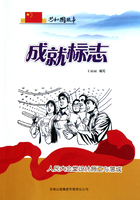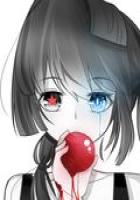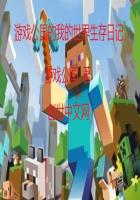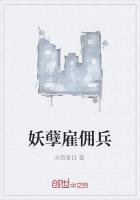I
F THERE is hope,'wrote Winston,‘it lies in the proles。'
If there was hope, it MUST lie in the proles,because only there in those swarming disregarded masses,85 per cent of the population of Oceania, could the force to destroy the Party ever be generated。 The Party could not be overthrown from within。Its enemies, if it had any enemies, had no way of coming together or even of identifying one another。Even if the legendary Brotherhood existed, as just possibly it might, it was inconceivable that its members could ever assemble in larger numbers than twos and threes。Rebellion meant a look in the eyes, an infexion of the voice, at the most, an occasional whispered word。But the proles, if only they could somehow become conscious of their own strength。would have no need to conspire。They needed only to rise up and shake themselves like a horse shaking off fies。If they chose they could blow the Party to pieces tomorrow morning。Surely sooner or later it must occur to them to do it?And yet—!
He remembered how once he had been walking down a crowded street when a tremendous shout of hundreds of voices women's voices—had burst from a side-street a little way ahead。 It was a great formidable cry of anger and despair, a deep, loud‘Oh-o-o-o-oh!'that went humming on like the reverberation of a bell。His heart had leapt。It's started!He had thought。A riot!
The proles are breaking loose at last!When he had reached the spot it was to seea mob of two or three hundred women crowding round the stalls of a street market, with faces as tragic as though they had been the doomed passengers on a sinking ship。 But at this moment the general despair broke down into a multitude of individual quarrels。It appeared that one of the stalls had been selling tin saucepans。They were wretched, flimsy things, but cooking-pots of any kind were always difficult to get。Now the supply had unexpectedly given out。The successful women, bumped and jostled by the rest, were trying to make off with their saucepans while dozens of others clamoured round the stall, accusing the stall-keeper of favouritism and of having more saucepans somewhere in reserve。There was a fresh outburst of yells。Two bloated women, one of them with her hair coming down, had got hold of the same saucepan and were trying to tear it out of one another's hands。For a moment they were both tugging, and then the handle came off。Winston watched them disgustedly。And yet, just for a moment, what almost frightening power had sounded in that cry from only a few hundred throats!Why was it that they could never shout like that about anything that mattered?
He wrote:
Until they become conscious they will never rebel, and until after they have rebelled they cannot become conscious。
That, he refected, might almost have been a tranion from one of the Party textbooks。 The Party claimed, of course, to have liberated the proles from bondage。Before the Revolution they had been hideously oppressed by the capitalists, they had been starved and fogged, women had‘
been forced to work in the coal mines(women still did work in the coal mines, as a matter of fact),children had been sold into the factories at the age of six。 But simultaneously, true to the Principles of doublethink, the Party taught that the proles were natural inferiors who must be kept in subjection, like animals, by the application of a few simple rules。In reality very little was known about the proles。It was not necessary to know much。So long as they continued to work and breed, their other activities were without importance。Left to themselves, like cattle turned loose upon the plains of Argentina, they had reverted to a style of life that appeared to be natural to them, a sort of ancestral pattern。They were born, they grew up in the gutters, they went to work at twelve, they passed through a brief blossoming-period of beauty and sexual desire, they married at twenty, they were middle-aged at thirty, they died, for the most part, at sixty。
Heavy physical work, the care of home and children, petty quarrels with neighbours, flms, football, beer, and above all, gambling, flled up the horizon of their minds。To keep them in control was not difficult。A few agents of the Thought Police moved always among them, spreading false rumours and marking down and eliminating the few individuals who were judged capable of becoming dangerous;but no attempt was made to indoctrinate them with the ideology of the Party。It was not desirable that the proles should have strong political feelings。All that was required of them was a primitive patriotism which could be appealed to whenever it was necessary to make them accept longer working-hours or shorter rations。And even when they became discontented, as they sometimes did, their discontent led nowhere, because being without general ideas, they could only focusit on petty specific grievances。 The larger evils invariably escaped their notice。The great majority of proles did not even have telescreens in their homes。Even the civil police interfered with them very little。
There was a vast amount of criminality in London, a whole world-within-a-world of thieves, bandits, prostitutes, drug-peddlers, and racketeers of every deion;but since it all happened among the proles themselves, it was of no importance。In all questions of morals they were allowed to follow their ancestral code。The sexual puritanism of the Party was not imposed upon them。Promiscuity went unpunished, divorce was permitted。For that matter, even religious worship would have been permitted if the proles had shown any sign of needing or wanting it。They were beneath suspicion。As the Party slogan put it:‘Proles and animals are free。'
Winston reached down and cautiously scratched his varicose ulcer。 It had begun itching again。The thing you invariably came back to was the impossibility of knowing what life before the Revolution had really been like。He took out of the drawer a copy of a children's history textbook which he had borrowed from Mrs。Parsons, and began copying a passage into the diary:
In the old days(it ran),before the glorious Revolution, London was not the beautiful city that we know today。 It was a dark, dirty, miserable place where hardly anybody had enough to eat and where hundreds and thousands of poor people had no boots on their feet and not even a roof to sleep under。Children no older than you had to work twelve hours a day for cruel masters who fogged them with whips if they worked too slowly and fed them on nothing but stale breadcrusts and water。Butin among all this terrible poverty there were just a few great big beautiful houses that were lived in by rich men who had as many as thirty servants to look after them。 These rich men were called capitalists。They were fat, ugly men with wicked faces, like the one in the picture on the opposite page。You can see that he is dressed in a long black coat which was called a frock coat, and a queer, shiny hat shaped like a stovepipe, which was called a top hat。This was the uniform of the capitalists, and no one else was allowed to wear it。The capitalists owned everything in the world, and everyone else was their slave。They owned all the land, all the houses, all the factories, and all the money。If anyone disobeyed them they could throw them into prison, or they could take his job away and starve him to death。When any ordinary person spoke to a capitalist he had to cringe and bow to him, and take off his cap and address him as‘Sir'。The chief of all the capitalists was called the King, and—
But he knew the rest of the catalogue。 There would be mention of the bishops in their lawn sleeves, the judges in their ermine robes, the pillory, the stocks, the treadmill, the cat-o'-nine tails, the Lord Mayor's Banquet, and the practice of kissing the Pope's toe。There was also something called the JUS PRIMAE NOCTIS, which would probably not be mentioned in a textbook for children。It was the law by which every capitalist had the right to sleep with any woman working in one of his factories。
How could you tell how much of it was lies?It MIGHT be true that the average human being was better off now than he had been before the Revolution。 The only evidence to the contrary was the mute protest in your own bones, the instinctive feeling that the conditions you lived in wereintolerable and that at some other time they must have been different。 It struck him that the truly characteristic thing about modern life was not its cruelty and insecurity, but simply its bareness, its dinginess, its listlessness。Life, if you looked about you, bore no resemblance not only to the lies that streamed out of the telescreens, but even to the ideals that the Party was trying to achieve。Great areas of it, even for a Party member, were neutral and non-political, a matter of slogging through dreary jobs, fghting for a place on the Tube, darning a worn-out sock, cadging a saccharine tablet, saving a cigarette end。
The ideal set up by the Party was something huge, terrible, and glittering—a world of steel and concrete, of monstrous machines and terrifying weapons—a nation of warriors and fanatics, marching forward in perfect unity, all thinking the same thoughts and shouting the same slogans, perpetually working, fghting, triumphing, persecuting—three hundred million people all with the same face。The reality was decaying, dingy cities where underfed people shuffled to and fro in leaky shoes, in patched-up nineteenth-century houses that smelt always of cabbage and bad lavatories。He seemed to see a vision of London, vast and ruinous, city of a million dustbins, and mixed up with it was a picture of Mrs。Parsons, a woman with lined face and wispy hair, fddling helplessly with a blocked waste-pipe。
He reached down and scratched his ankle again。 Day and night the telescreens bruised your ears with statistics proving that people today had more food, more clothes, better houses, better recreations—that they lived longer, worked shorter hours, were bigger, healthier, stronger, happier, more intelligent, better educated, than the people of fifty years ago。Not a word of it could ever be proved or disproved。TheParty claimed, for example, that today 40 per cent of adult proles were literate;before the Revolution, it was said, the number had only been 15 per cent。 The Party claimed that the infant mortality rate was now only 160 per thousand, whereas before the Revolution it had been 300—and so it went on。It was like a single equation with two unknowns。It might very well be that literally every word in the history books, even the things that one accepted without question, was pure fantasy。For all he knew there might never have been any such law as the JUS PRIMAE NOCTIS, or any such creature as a capitalist, or any such garment as a top hat。
Everything faded into mist。 The past was erased, the erasure was forgotten, the lie became truth。Just once in his life he had possessed—AFTER the event:that was what counted—concrete, unmistakable evidence of an act of falsifcation。He had held it between his fngers for as long as thirty seconds。In 1973,it must have been—at any rate, it was at about the time when he and Katharine had parted。But the really relevant date was seven or eight years earlier。
The story really began in the middle sixties, the period of the great purges in which the original leaders of the Revolution were wiped out once and for all。 By 1970 none of them was left, except Big Brother himself。All the rest had by that time been exposed as traitors and counter-revolutionaries。Goldstein had fled and was hiding no one knew where, and of the others, a few had simply disappeared, while the majority had been executed after spectacular public trials at which they made confession of their crimes。Among the last survivors were three men named Jones, Aaronson, and Rutherford。It must have been in 1965 that these three had been arrested。As often happened, they had vanished for ayear or more, so that one did not know whether they were alive or dead, and then had suddenly been brought forth to incriminate themselves in the usual way。 They had confessed to intelligence with the enemy(at that date, too, the enemy was Eurasia),embezzlement of public funds, the murder of various trusted Party members, intrigues against the leadership of Big Brother which had started long before the Revolution happened, and acts of sabotage causing the death of hundreds of thousands of people。After confessing to these things they had been pardoned, reinstated in the Party, and given posts which were in fact sinecures but which sounded important。All three had written long, abject articles in‘The Times',analysing the reasons for their defection and promising to make amends。
Some time after their release Winston had actually seen all three of them in the Chestnut Tree Cafe。 He remembered the sort of terrifed fascination with which he had watched them out of the corner of his eye。They were men far older than himself, relics of the ancient world, almost the last great fgures left over from the heroic days of the Party。The glamour of the underground struggle and the civil war still faintly clung to them。He had the feeling, though already at that time facts and dates were growing blurry, that he had known their names years earlier than he had known that of Big Brother。But also they were outlaws, enemies, untouchables, doomed with absolute certainty to extinction within a year or two。No one who had once fallen into the hands of the Thought Police ever escaped in the end。They were corpses waiting to be sent back to the grave。
There was no one at any of the tables nearest to them。 It was not wise even to be seen in the neighbourhood of suchpeople。 They were sitting in silence before glasses of the gin flavoured with cloves which was the speciality of the cafe。Of the three, it was Rutherford whose appearance had most impressed Winston。Rutherford had once been a famous caricaturist, whose brutal cartoons had helped to inflame popular opinion before and during the Revolution。Even now, at long intervals, his cartoons were appearing in The Times。They were simply an imitation of his earlier manner, and curiously lifeless and unconvincing。Always they were a rehashing of the ancient themes—slum tenements, starving children, street battles, capitalists in top hats—even on the barricades the capitalists still seemed to cling to their top hats an endless, hopeless effort to get back into the past。He was a monstrous man, with a mane of greasy grey hair, his face pouched and seamed, with thick negroid lips。At one time he must have been immensely strong;now his great body was sagging, sloping, bulging, falling away in every direction。He seemed to be breaking up before one's eyes, like a mountain crumbling。
It was the lonely hour of ffteen。 Winston could not now remember how he had come to be in the cafe at such a time。The place was almost empty。A tinny music was trickling from the telescreens。The three men sat in their corner almost motionless, never speaking。Uncommanded, the waiter brought fresh glasses of gin。There was a chessboard on the table beside them, with the pieces set out but no game started。And then, for perhaps half a minute in all, something happened to the telescreens。The tune that they were playing changed, and the tone of the music changed too。There came into it—but it was something hard to describe。It was a peculiar, cracked, braying, jeering note:in his mind Winstoncalled it a yellow note。 And then a voice from the telescreen was singing:
Under the spreading chestnut tree I sold you and you sold me;
There lie they, and here lie weUnder the spreading chestnut tree。
The three men never stirred。 But when Winston glanced again at Rutherford's ruinous face, he saw that his eyes were full of tears。And for the first time he noticed, with a kind of inward shudder, and yet not knowing AT WHAT he shuddered, that both Aaronson and Rutherford had broken noses。
A little later all three were re-arrested。 It appeared that they had engaged in fresh conspiracies from the very moment of their release。At their second trial they confessed to all their old crimes over again, with a whole string of new ones。They were executed, and their fate was recorded in the Party histories, a warning to posterity。About fve years after this, in 1973,Winston was unrolling a wad of documents which had just flopped out of the pneumatic tube on to his desk when he came on a fragment of paper which had evidently been slipped in among the others and then forgotten。The instant he had fattened it out he saw its signifcance。It was a half-page torn out of‘The Times'of about ten years earlier—the top half of the page, so that it included the date—and it contained a photograph of the delegates at some Party function in New York。Prominent in the middle of the group were Jones, Aaronson, and Rutherford。There was no mistaking them, in any case their names were in the captionat the bottom。
The point was that at both trials all three men had confessed that on that date they had been on Eurasian soil。 They had flown from a secret airfield in Canada to a rendezvous somewhere in Siberia, and had conferred with members of the Eurasian General Staff, to whom they had betrayed important military secrets。The date had stuck in Winston's memory because it chanced to be midsummer day;but the whole story must be on record in countless other places as well。There was only one possible conclusion;the confessions were lies。
Of course, this was not in itself a discovery。 Even at that time Winston had not imagined that the people who were wiped out in the purges had actually committed the crimes that they were accused of。But this was concrete evidence;it was a fragment of the abolished past, like a fossil bone which turns up in the wrong stratum and destroys a geological theory。It was enough to blow the Party to atoms, if in some way it could have been published to the world and its signifcance made known。
He had gone straight on working。 As soon as he saw what the photograph was, and what it meant, he had covered it up with another sheet of paper。Luckily, when he unrolled it, it had been upside-down from the point of view of the telescreen。
He took his scribbling pad on his knee and pushed back his chair so as to get as far away from the telescreen as possible。 To keep your face expressionless was not diffcult, and even your breathing could be controlled, with an effort;but you could not control the beating of your heart, and the telescreen was quite delicate enough to pick it up。He letwhat he judged to be ten minutes go by, tormented all the while by the fear that some accident—a sudden draught blowing across his desk, for instance—would betray him。 Then, without uncovering it again, he dropped the photograph into the memory hole, along with some other waste papers。Within another minute, perhaps, it would have crumbled into ashes。
That was ten—eleven years ago。 Today, probably, he would have kept that photograph。It was curious that the fact of having held it in his fngers seemed to him to make a difference even now, when the photograph itself, as well as the event it recorded, was only memory。Was the Party's hold upon the past less strong, he wondered, because a piece of evidence which existed no longer HAD ONCE existed?
But today, supposing that it could be somehow resurrected from its ashes, the photograph might not even be evidence。 Already, at the time when he made his discovery, Oceania was no longer at war with Eurasia, and it must have been to the agents of Eastasia that the three dead men had betrayed their country。Since then there had been other changes—two, three, he could not remember how many。Very likely the confessions had been rewritten and rewritten until the original facts and dates no longer had the smallest significance。The past not only changed, but changed continuously。What most afflicted him with the sense of nightmare was that he had never clearly understood why the huge imposture was undertaken。The immediate advantages of falsifying the past were obvious, but the ultimate motive was mysterious。He took up his pen again and wrote:
I understand HOW:I do not understand WHY。
He wondered, as he had many times wondered before, whether he himself was a lunatic。 Perhaps a lunatic was simply a minority of one。At one time it had been a sign of madness to believe that the earth goes round the sun;today, to believe that the past is unalterable。He might be ALONE in holding that belief, and if alone, then a lunatic。But the thought of being a lunatic did not greatly trouble him;the horror was that he might also be wrong。
He picked up the children's history book and looked at the portrait of Big Brother which formed its frontispiece。 The hypnotic eyes gazed into his own。It was as though some huge force were pressing down upon you—something that penetrated inside your skull, battering against your brain, frightening you out of your beliefs, persuading you, almost, to deny the evidence of your senses。In the end the Party would announce that two and two made fve, and you would have to believe it。It was inevitable that they should make that claim sooner or later;the logic of their position demanded it。Not merely the validity of experience, but the very existence of external reality, was tacitly denied by their philosophy。The heresy of heresies was common sense。And what was terrifying was not that they would kill you for thinking otherwise, but that they might be right。For, after all, how do we know that two and two make four?Or that the force of gravity works?Or that the past is unchangeable?If both the past and the external world exist only in the mind, and if the mind itself is controllable what then?
But no!His courage seemed suddenly to stiffen of its own accord。 The face of O'Brien, not called up by any obvious association, had foated into his mind。He knew, with more certainty than before, that O'Brien was on his side。He waswriting the diary for O'Brien—TO O'Brien;it was like an interminable letter which no one would ever read, but which was addressed to a particular person and took its colour from that fact。
The Party told you to reject the evidence of your eyes and ears。 It was their final, most essential command。His heart sank as he thought of the enormous power arrayed against him, the ease with which any Party intellectual would overthrow him in debate, the subtle arguments which he would not be able to understand, much less answer。And yet he was in the right!They were wrong and he was right。The obvious, the silly, and the true had got to be defended。Truisms are true, hold on to that!The solid world exists, its laws do not change。Stones are hard, water is wet, objects unsupported fall towards the earth's centre。With the feeling that he was speaking to O'Brien, and also that he was setting forth an important axiom, he wrote:
Freedom is the freedom to say that two plus two make four。 If that is granted, all else follows。














